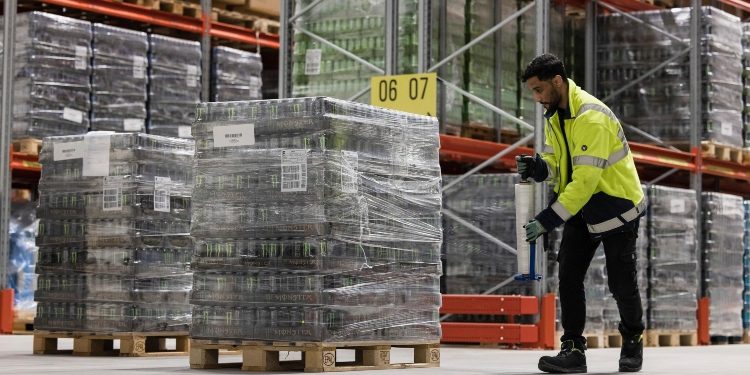Expanding a retail business internationally presents lucrative opportunities for growth, but it also entails a multitude of challenges, including logistical hurdles and regulatory complexities. To navigate this terrain successfully, retailers must take strategic steps to ensure a seamless and efficient expansion process.
This comprehensive guide explores the pivotal role of bonded warehouses in facilitating international retail expansion and streamlining global shipping operations. We’ll delve into the benefits of bonded warehouses, the types of goods they accommodate, and key considerations for selecting the right bonded warehousing partner. By harnessing the power of bonded warehouses, retailers can mitigate risks, optimize costs, and pave the way for sustainable success in new international markets.
What is a Bonded Warehouse?
A bonded warehouse serves as a secure storage facility authorized by the government to hold imported goods before they are released into the local market or exported to other countries. Essentially, it provides a temporary haven for goods awaiting customs clearance and payment of duties and taxes.
Goods stored in bonded warehouses, known as “bonded products” or “cargo,” remain under customs supervision until they are released for distribution. These warehouses are subject to stringent regulations and are typically operated by private entities under the oversight of customs authorities. In addition to storage, bonded warehouses offer ancillary services such as packaging, labeling, and distribution, making them an attractive option for retailers venturing into international markets.
Types of Goods Stored in Bonded Warehouses
Bonded warehouses accommodate a diverse array of imported products, including:
- Raw materials used in manufacturing processes (e.g., chemicals, textiles, metals)
- Finished goods such as electronics and apparel
- Perishable items like food products
- High-value merchandise including luxury items and jewelry
- Hazardous materials such as flammable liquids and chemicals
Bonded Warehouses vs. Non-Bonded Warehouses: Understanding the Distinction
Bonded warehouses and non-bonded warehouses serve distinct purposes and operate under different protocols:
Bonded Warehouses:
- Purpose: Authorized by governments to store imported goods temporarily, facilitating customs procedures and deferring duty payments.
- Storage Period: Goods can be held for an extended duration, typically up to five years, offering flexibility for businesses.
- Duties and Taxes: Payment of customs duties and taxes is deferred until goods are released from the warehouse.
- Custom Controls: Subject to rigorous customs oversight to ensure compliance with regulations.
Non-Bonded Warehouses:
- Purpose: Standard storage facilities used for goods without special customs privileges.
- Storage Period: Generally operate on shorter storage periods, minimizing long-term storage costs.
- Duties and Taxes: Duties and taxes are typically paid upfront upon entry of goods into the warehouse.
- Custom Controls: Governed by regular commercial regulations rather than stringent customs oversight.
Deciding between bonded and non-bonded warehouses hinges on various factors, including a retailer’s operational needs, regulatory requirements, and market dynamics. Many retailers opt for a hybrid approach, leveraging both types of warehouses to optimize their supply chain strategies and meet evolving business demands.
Bonded Warehouses: Engine of Efficiency for Retailers Expanding Globally
Bonded warehouses offer a myriad of advantages that make them indispensable for retailers venturing into international markets:
- Duty Deferment: Retailers can defer payment of customs duties and taxes until goods are released from the warehouse, bolstering cash flow and financial flexibility.
- Long-Term Storage: With extended storage durations of up to five years, retailers can maintain optimal inventory levels without the pressure of immediate distribution.
- In-House Fulfillment Services: Many bonded warehouses provide comprehensive order fulfillment services, streamlining operations and enhancing efficiency in meeting customer demands.
- Preservation of Product Quality: Bonded warehouses offer specialized storage conditions to safeguard the quality and integrity of goods, ensuring they remain market-ready throughout the storage period.
Navigating the Terrain: How Bonded Warehouses Facilitate Retail Operations
Understanding the workflow within bonded warehouses is pivotal for retailers looking to optimize fulfillment logistics:
- Goods Arrival: Imported goods are received at the bonded warehouse, where they are subject to customs supervision until clearance.
- Proper Storage: Bonded products are stored using specialized services tailored to the nature of the goods, ensuring optimal conditions for preservation.
- Manipulation and Manufacturing: Goods may undergo sorting, repackaging, or manufacturing processes within the warehouse, enhancing their market readiness.
- Order Fulfillment: Bonded warehouses serve as fulfillment centers, equipped with dedicated staff and resources for picking, packing, and shipping orders.
- Duties and Taxes Settlement: Retailers settle customs duties, taxes, and fees upon the release of goods for distribution or consumption.
Choosing the Right Bonded Warehouse Partner: Key Considerations for Retailers
When selecting a bonded warehouse partner, retailers should prioritize the following factors:
- Location: Opt for a warehouse situated in close proximity to target markets or customer bases, minimizing transit times and transportation costs.
- Services Offered: Ensure the warehouse offers a comprehensive suite of services encompassing storage, inventory management, and order fulfillment.
- Security Measures: Assess the warehouse’s security protocols to safeguard inventory against theft, damage, or unauthorized access.
- Capacity: Confirm that the warehouse has sufficient capacity to accommodate inventory volumes and meet anticipated order demands.
- Technological Capabilities: Look for warehouses equipped with advanced technology for inventory tracking, order processing, and shipment management.
- Cost-Effectiveness: Strike a balance between cost and quality, comparing pricing structures and additional fees across different warehouse options.
Charting the Course for Global Retail Success
Expanding into international markets holds immense potential for retailers seeking to broaden their horizons and unlock new avenues of growth. Bonded warehouses serve as a linchpin in this journey, offering retailers a strategic advantage by streamlining customs procedures, optimizing inventory management, and enhancing operational efficiency.
By leveraging the benefits of bonded warehouses and adhering to best practices outlined in this guide, retailers can navigate the complexities of global expansion with confidence. Whether it’s deferring duties, ensuring product quality, or accelerating order fulfillment, bonded warehouses empower retailers to establish a robust global presence, capitalize on emerging opportunities, and deliver unparalleled value to customers worldwide.
David Prior
David Prior is the editor of Today News, responsible for the overall editorial strategy. He is an NCTJ-qualified journalist with over 20 years’ experience, and is also editor of the award-winning hyperlocal news title Altrincham Today. His LinkedIn profile is here.


![7 Best POS Software in the UK [2026 Edition]](https://todaynews.co.uk/wp-content/uploads/2026/02/7-Best-POS-Software-in-the-UK-2026-Edition-360x180.png)








































































